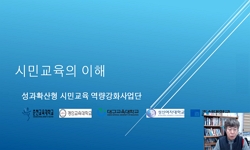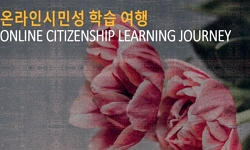우리 국민은 대한민국의 주권자로서 자신들이 살아야 할 정치공동체를 민주공화국으로 결단하였다. 그리고 그 정치체제 안에서 자신들이 어떤 모습으로 살아갈 것인지에 대한 인간상 - 이...
http://chineseinput.net/에서 pinyin(병음)방식으로 중국어를 변환할 수 있습니다.
변환된 중국어를 복사하여 사용하시면 됩니다.
- 中文 을 입력하시려면 zhongwen을 입력하시고 space를누르시면됩니다.
- 北京 을 입력하시려면 beijing을 입력하시고 space를 누르시면 됩니다.
헌법적 합의에 기초한 한국 학교 시민교육의 과제 = The Issue of Civic Education in Korean Schools Based on Constitutional Consensus
한글로보기https://www.riss.kr/link?id=A103065955
- 저자
- 발행기관
- 학술지명
- 권호사항
-
발행연도
2017
-
작성언어
-
- 주제어
-
KDC
362
-
자료형태
학술저널
-
수록면
121-152(32쪽)
- 제공처
- 소장기관
-
0
상세조회 -
0
다운로드
부가정보
국문 초록 (Abstract)
우리 국민은 대한민국의 주권자로서 자신들이 살아야 할 정치공동체를 민주공화국으로 결단하였다. 그리고 그 정치체제 안에서 자신들이 어떤 모습으로 살아갈 것인지에 대한 인간상 - 이른바 “헌법적 시민상” - 뿐만 아니라, 주권 행사의 구체적인 방법, 국가공동체에 대한 공화주의적 책임까지 스스로 결단하고 헌법에 조문화하였다. 따라서 이러한 결단의 내용, 즉 그 결단의 최소한으로서 “헌법적 합의(Constitutional Consensus)”만큼은 대한민국의 주권자로서 우리 국민이 반드시 교육받아야 할 헌법적 권리인 것이다.
그러나 종래 전개되어 온 학교 시민교육을 비롯한 학교 밖 지원 시스템은 이러한 국민의 시민교육을 받을 헌법적 권리를 충분히 보장하여 온 것으로 보기 어렵다. 특히 학교는 시민교육의 최적지로서 다른 어떤 기관과도 비교할 수 없을 정도로 그 비중이 매우 큰 영역이다. 그러나 학교는 그동안 사회과를 위시한 특정 교과 중심의 시민교육에 집중하여 왔고, 그마저도 과거에는 권위주의 정권의 성격에 따라 좌지우지 되었다가, 현재는 교과이기주의로 인해 그 기대에 부응하여 왔다고 보기 어려웠다. 게다가 학교에서는 현재 법으로써 인성교육이 먼저 시행되면서 시민교육과 긴장관계에 놓여 있고, 민주적인 시민을 양성해야 할 학교문화와 시스템이 아직도 비민주적인 상태에 머물러 있다. 특히 교육의 정치적 중립성에 대한 왜곡된 해석과 관행 때문에 아직도 학교 현장에서는 살아있는 정치적 쟁점이 아닌 화석화(化石化)된 쟁점만을 다루도록 내몰리고 있는 실정이다.
결국 이 모든 문제의 근원에는 아직까지 우리 사회에 학교 시민교육에 대한 “근본적 합의(Fundamental Consensus)”로서 이른바 “헌법적 합의(Constitutional Consensus)가 없었기 때문이다. 따라서 한국의 학교 시민교육은 이 지점에 대한 합의로부터 다시 시작해야 할 것이다. 다만 그 방법상의 합의로서 앞으로 고민해야 할 선택지들이 산적해 있으므로, 우리 헌법이 학교 시민교육을 통해 기대하는 바가 무엇인지를 진지하게 숙고하여 결단해야 할 것이다.
바로 “여기는, 대한민국 국민이 다스리는 곳”이기 때문이다.
다국어 초록 (Multilingual Abstract)
The people of Korea, collectively the sovereign of the nation, have determined that the political community in which they reside be constituted as a democratic republic. Also, they themselves have decided on how they would live within that political s...
The people of Korea, collectively the sovereign of the nation, have determined that the political community in which they reside be constituted as a democratic republic. Also, they themselves have decided on how they would live within that political system - as a so-called “constitutional citizenry” - and the specific means by which they would exercise both sovereignty and republican responsibility on behalf of the country as a community, and accordingly, stipulated such provisions in the Constitution. Therefore, we, as citizens and the sovereign of Korea, must receive an education reflecting such decision, namely a constitutional consensus at least for it is our constitutional right.
However, civic education in schools and other extra-curricular support systems that have traditionally been developed cannot be interpreted as adequately guaranteeing the constitutional right of citizens to receive a civic education. Schools, especially, ought to be the optimal forum for civic education and are of great importance, incommensurable with any other institution. Nevertheless, schools have thus far concentrated on civic education that focuses only on certain subjects, notably social studies, and that cannot be said to have met societal expectations since such education had been controlled by authoritarian governments in the past and by the rigidity of narrowly defined academic disciplines in the present. Furthermore, schools are currently implementing character-education as stipulated by law, which constrains civic education.
Unsurprisingly, the very school culture and system that should be fostering democratic citizens therefore remain undemocratic. Specifically, schools are being forced to reflect on fossilized political issues, not pending issues, due to the distorted interpretation and customs of political neutrality of education. Ultimately, the root of all problems articulated above is that there has not been a so-called “Constitutional Consensus” as the “fundamental consensus” regarding scholastic civic education in our society. Therefore, civic education promoted in Korean schools should be reformulated from such consensus. Since there are options waiting to be made regarding agreement on the means to reach the consensus, civic education should be seriously considered and decided on the basis of what our constitution requires from school civic education. Because,
“Here, the People of Republic of Korea Rule!”
목차 (Table of Contents)
- 초록
- Ⅰ. 문제의 제기
- Ⅱ. 한국 학교 시민교육의 현황과 문제점
- Ⅲ. 헌법적 합의에 기초한 한국 학교 시민교육의 과제
- Ⅳ. 맺음말
- 초록
- Ⅰ. 문제의 제기
- Ⅱ. 한국 학교 시민교육의 현황과 문제점
- Ⅲ. 헌법적 합의에 기초한 한국 학교 시민교육의 과제
- Ⅳ. 맺음말
- 참고문헌
- Abstract
동일학술지(권/호) 다른 논문
-
- 헌법이론실무학회
- Michael Hund
- 2017
-
[번역문] 독일에서의 정치적 및 사회적 생활의 기본질서로서의 헌법(독일연방공화국기본법)
- 헌법이론실무학회
- 미하엘 훈트(원문)
- 2017
-
- 헌법이론실무학회
- 김선택(Kim Seon Taek)
- 2017
-
- 헌법이론실무학회
- 정태호
- 2017





 스콜라
스콜라





